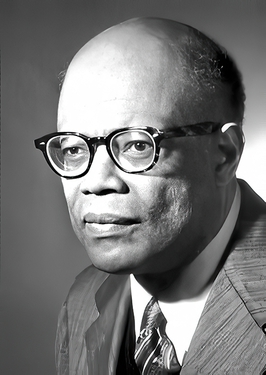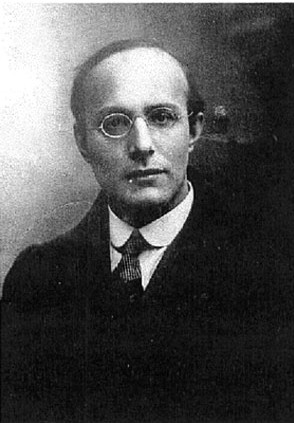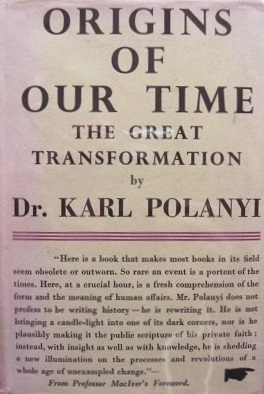External links
- The Karl Polanyi Institute of Political Economy - The Karl Polanyi Institute of Political Economy at Concordia University website.
- Kari Polanyi Levitt website - Kari Polanyi Levitt website (archive.org).
Kari Polanyl Levitt | |
|---|---|
| Born | June 14, 1923 Vienna, Austria |
| Education | London School of Economics University of Toronto (Master's Degrees in Economics) |
| Occupation | Economist |
| Known for | Emerita Professor of Economics at McGill University, Montreal |
| Spouse | Joseph Levitt |
| Family | (father) Karl Polanyi - Economist |
| Awards | Honorary Doctorate of the University of West Indies (2008) |
Kari Polanyi Levitt (born June 14, 1923) [1] is a Canadian economist, currently Emerita Professor of Economics at McGill University, Montreal. [2]
She is known for her work on economic development and economic sovereignty, and in particular for her 1970 book Silent Surrender: The Multinational Corporation in Canada. She is also the literary executor of her father, the economic historian Karl Polanyi.
Polanyi Levitt was born in Vienna, Austria and relocated to England with her father in 1933 and attended Bedales School and the London School of Economics. After graduating in 1947 she moved to Canada, and in 1950 married the Canadian historian Joseph Levitt. She received a Master's degree in Economics from the University of Toronto in 1959, and joined the Department of Economics at McGill University in 1961. [1] Over the next decade she undertook research projects for Statistics Canada and for the New Democratic Party of Canada in addition to her work at McGill. Her position paper for the NDP on foreign direct investment in Canada eventually became "Silent Surrender." [1]
Polanyi Levitt has maintained contact with colleagues in the Caribbean throughout her career and has held several posts as a visiting professor at the University of the West Indies, as well as serving as an advisor on the creation of a system of national accounts for the Government of Trinidad and Tobago. She has written, edited and co-edited four volumes related to Caribbean economics. In 2008, she was awarded an honorary doctorate by the University of the West Indies. [3]
The historical school of economics was an approach to academic economics and to public administration that emerged in the 19th century in Germany, and held sway there until well into the 20th century. The professors involved compiled massive economic histories of Germany and Europe. Numerous Americans were their students. The school was opposed by theoretical economists. Prominent leaders included Gustav von Schmoller (1838–1917), and Max Weber (1864–1920) in Germany, and Joseph Schumpeter (1883–1950) in Austria and the United States.

Sir William Arthur Lewis was a Saint Lucian economist and the James Madison Professor of Political Economy at Princeton University. Lewis was known for his contributions in the field of economic development. In 1979, he was awarded the Nobel Memorial Prize in Economic Sciences.

Karl Paul Polanyi, was an Austro-Hungarian economic anthropologist, economic sociologist, and politician, best known for his book The Great Transformation, which questions the conceptual validity of self-regulating markets.

Economic sociology is the study of the social cause and effect of various economic phenomena. The field can be broadly divided into a classical period and a contemporary one, known as "new economic sociology".
Neo-Gramscianism is a critical theory approach to the study of international relations (IR) and the global political economy (GPE) that explores the interface of ideas, institutions and material capabilities as they shape the specific contours of the state formation. The theory is heavily influenced by the writings of Antonio Gramsci. Neo-Gramscianism analyzes how the particular constellation of social forces, the state and the dominant ideational configuration define and sustain world orders. In this sense, the neo-Gramscian approach breaks the decades-old stalemate between the realist schools of thought and the liberal theories by historicizing the very theoretical foundations of the two streams as part of a particular world order and finding the interlocking relationship between agency and structure. Karl Polanyi, Karl Marx, Max Weber, Max Horkheimer, Theodor Adorno and Michel Foucault are cited as major sources within the critical theory of IR.

Embedded liberalism is a term in international political economy for the global economic system and the associated international political orientation as they existed from the end of World War II to the 1970s. The system was set up to support a combination of free trade with the freedom for states to enhance their provision of welfare and to regulate their economies to reduce unemployment. The term was first used by the American political scientist John Ruggie in 1982.

The Great Transformation is a book by Karl Polanyi, a Hungarian political economist. First published in 1944 by Farrar & Rinehart, it deals with the social and political upheavals that took place in England during the rise of the market economy. Polanyi contends that the modern market economy and the modern nation-state should be understood not as discrete elements but as a single human invention, which he calls the "Market Society".
Polányi, Polanyi is a surname. There have been a number of prominent individuals in the Polanyi family, illustrated in the following family tree:
Gerhard Albert Baum, better known as Gregory Baum, was a German-born Canadian priest and theologian in the Catholic Church. He became known in North America and Europe in the 1960s for his work on ecumenism, interfaith dialogue, and the relationship between the Catholic Church and Jews. In the later 1960s, he went to the New School for Social Theory in New York and became a sociologist, which led to his work on creating a dialogue between classical sociology and Christian theology.
The Desautels Faculty of Management is a faculty of McGill University in Montreal, Quebec, Canada. The faculty offers a range of undergraduate and graduate-level business programs, including the Bachelor of Commerce, Master of Business Administration and Doctor of Philosophy in management degrees. The Faculty of Management also offers a joint MBA/Law program with McGill's Faculty of Law.
Ayşe Buğra is a Turkish social scientist, currently professor of Political Economy at the Atatürk Institute for Modern Turkish History and the co-founder of the Social Policy Forum of Boğaziçi University in Istanbul. She is a recipient of the TWAS Prize for Social Sciences which she received in 2014.
Lloyd Algernon Best, OCC was a Trinidadian intellectual, columnist, professor, and economist.
The Foreign Investment Review Agency (FIRA) was established by the Canadian Parliament in 1973 to ensure that the foreign acquisition and establishment of businesses in Canada was beneficial to the country. The Foreign Investment Review Act that created the agency was the culmination of a series of government reports and debates. The 1957 report of the Royal Commission on Canada's Economic Prospects (known as the Gordon Commission) firmly planted foreign investment on the political agenda. Next, the 1968 Watkins report (known formally as Foreign Ownership and the Structure of Canadian Industry), called for a national policy capable of handling Canada's interests in the age of the multinational corporation.
Norman P. Girvan was a Jamaican professor, Secretary General of the Association of Caribbean States between 2000 and 2004. He was born in Saint Andrew Parish, Jamaica. He died aged 72 in Cuba on 9 April 2014, after having suffered a fall while hiking in Dominica in early 2014. He had been a member of the United Nations Committee on Development Policy since 2009, and in 2010 was appointed the UN Secretary-General Ban Ki-moon's personal representative on the Guyana-Venezuela border controversy. He was Professor Emeritus of the University of the West Indies (UWI).

Ilona Duczynska was a Polish-Hungarian-Canadian revolutionary, journalist, translator, engineer, and historian. Her husband was Karl Polanyi and her daughter is Kari Polanyi Levitt.

Violet Eudine Barriteau,FB, GCM, is a professor of gender and public policy, as well as Principal of the University of the West Indies at Cave Hill. She was also the president of the International Association for Feminist Economics (IAFFE) from 2009 to 2010, and she is on the advisory editorial boards of Palimpsest: A Journal on Women, Gender, and the Black International, published by SUNY Press, and Signs: Journal of Women in Culture and Society, published by University of Chicago Press.
The economistic fallacy is a concept originated by Karl Polanyi in the 1950s, that refers to fallacious conflation of human economy in general, with its market form. Whereas the former is a necessary component of any society, being the organization through which that society meets its physical wants, i.e. reproduces itself, the latter is a modern institution that is neither autonomous nor stable. The fallacy can occur either by narrowing the genus "economic" to merely market phenomena, or overextending "the market" to encompass all aspects of human economic activity. These moves can be seen as equating the conceptual content of "economics" with what is in fact mere form or ideology, instead of with the substance embodied by the specific decisive relations in which humans are engaged in any given period and locale.

Dr. DeLisle Worrell is a former governor of the Central Bank of Barbados. He served as governor from November 2009 until March 2017. He has also served as executive director of the Caribbean Centre for Money and Finance (CCMF). Since June 2018, he is a member of the Financial Policy Council of the Bermuda Monetary Authority.
Donald Jasper Harris is a Jamaican-American economist and professor emeritus at Stanford University, known for applying post-Keynesian ideas to development economics. He is the father of the 49th and current vice president of the United States, Kamala Harris, as well as of her sister, lawyer and political commentator Maya Harris.
Anique Jordan is a Canadian multi-disciplinary artist, writer, curator and entrepreneur known for her work in photography, sculpture, and performance. Her artwork challenges historical narratives, reinterpreting the past in order to develop a vision of the future. Among her themes are black history in Canada, working-class communities, the relationship between the country's black and Indigenous peoples, and the work black people have put into explaining and fighting against racism.